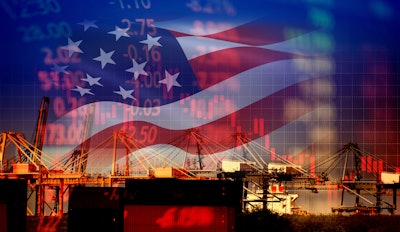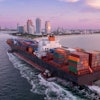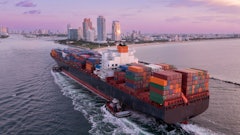
As soon as the election wrapped my inbox was flooded with commentary surrounding the Trump administrations tariff proposal. In November, I featured another Alexis Asks on the topic, explaining the impact on manufacturing across the country, and since then the situation has continued to be volatile in opinion.
Tariffs, essentially taxes imposed on imported goods, have long been used as tools for economic policy, to protect domestic industries or retaliate in trade disputes. In the supply chain, the implications can ripple through industries and economies in ways that extend far beyond the initial tariffed goods — and that's where the conversation begins.
Steve Ponting, regional director at Software AG, says in this case that ripple will be palpable. Few manufacturers currently operate solely in the U.S., and according to Ponting, retailers relying on global supply chains may try to pre-empt shakeups by purchasing and importing goods ahead of the inauguration. And this sort of panic buying could trigger shortages, mirroring those early days of the pandemic.
"The key to avoiding demand shocks is transparency; if companies are equipped with the proper information to anticipate and prepare for shifts in consumer behaviors and global trade, they can act in a way that serves their best interests without doing outside harm, even leaning on AI modeling to light the path where necessary," says Ponting.
Tariffs are kind of like a double-edged sword: while they can protect domestic industries, they also pose significant challenges for global supply chains. Companies must stay agile and balance strategy in their partnerships, coupled with continued monitoring of consumer interests, to mitigate these risks.


















![Pros To Know 2026 [color]](https://img.sdcexec.com/mindful/acbm/workspaces/default/uploads/2025/08/prostoknow-2026-color.mduFvhpgMk.png?ar=16%3A9&auto=format%2Ccompress&bg=fff&fill-color=fff&fit=fill&h=135&q=70&w=240)